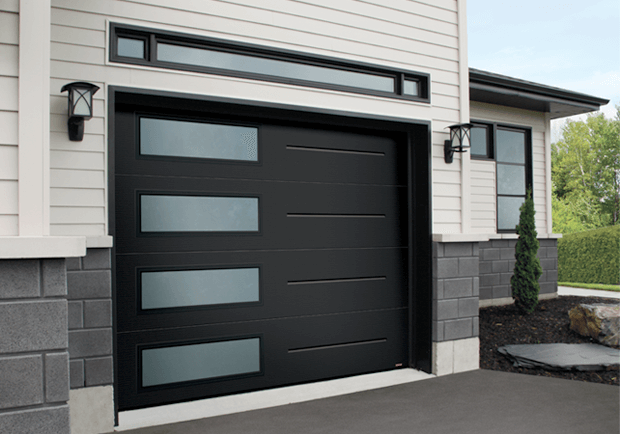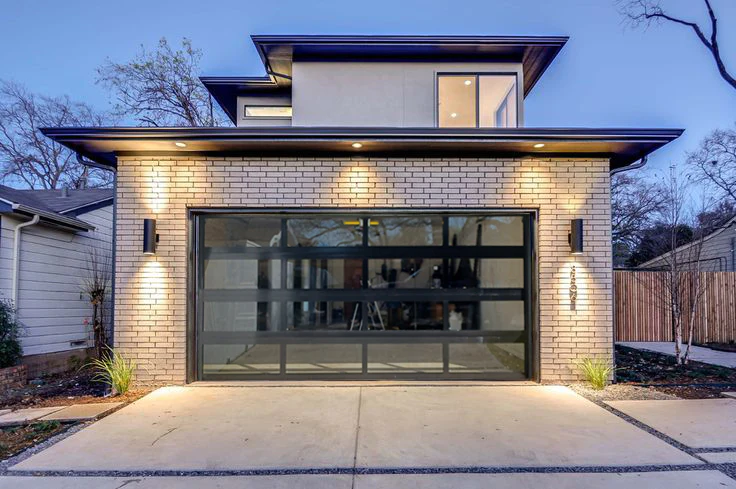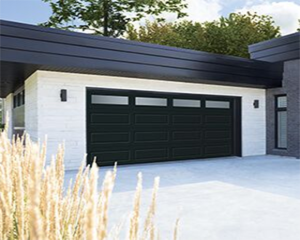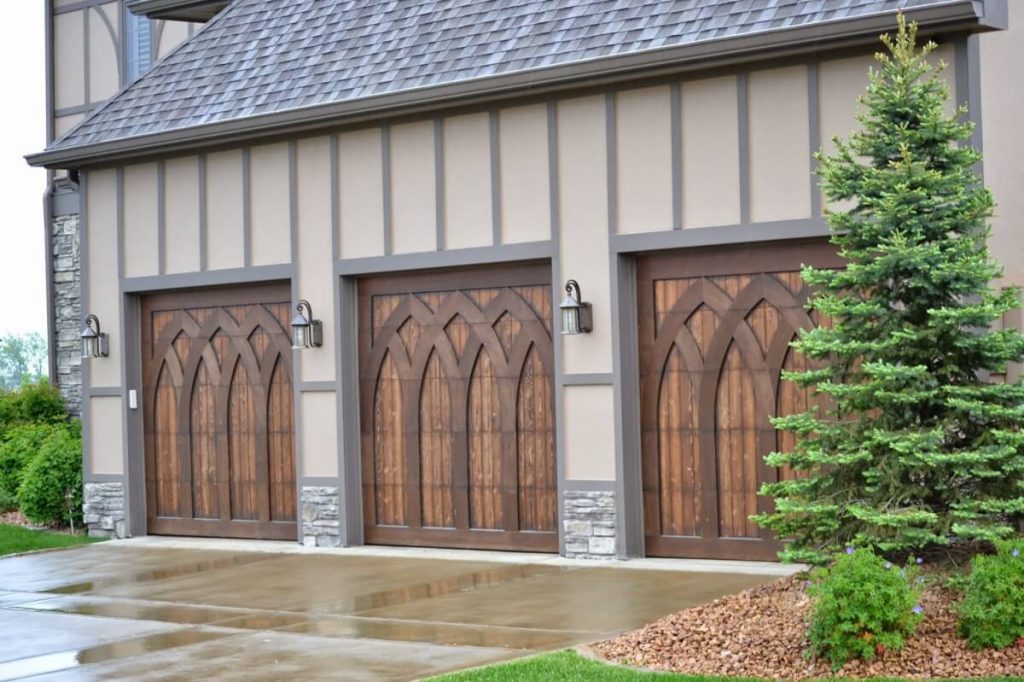When to Know to Call a Repair Tech for Your Garage Door: A Comprehensive Guide
When to Know to Call a Repair Tech for Your Garage Door: A Comprehensive Guide
Signs That Your Garage Door Needs Professional Maintenance
Garage doors are an essential component of our homes, providing security and convenience. However, like any mechanical system, they can experience malfunctions over time. It is important to be aware of the signs indicating a malfunctioning garage door to prevent potential accidents or further damage. In this introduction, we will explore common signs of a malfunctioning garage door and when it is necessary to call a professional repairman for assistance. By understanding these indicators, homeowners can take appropriate action to ensure their garage doors are functioning optimally and safely.
1. Unusual Noises and Grinding Sounds
Garage doors are an essential part of our homes, providing convenience and security. However, it can be quite alarming when we start hearing strange noises coming from our garage doors. One common issue that homeowners often encounter is grinding sounds in their garage doors. These noises can range from a low rumble to a loud grinding sound, and can be quite unsettling.
Grinding sounds in garage doors usually indicate a problem with the door’s mechanical components. This could be due to worn-out rollers, misaligned tracks, or loose hardware. When these components are not functioning properly, they can cause friction and grinding sounds when the door is opening or closing.
It is important to address these grinding sounds promptly as they can lead to further damage if left unattended. Regular maintenance and inspection of your garage door can help identify any issues early on and prevent them from escalating.
In addition to grinding sounds, there are other strange noises that you may hear coming from your garage door. These could include squeaking, rattling, or screeching sounds. These noises could indicate different problems such as loose hinges or springs that need lubrication or replacement.
If you notice any unusual noises coming from your garage door, it is recommended to consult with a professional technician who specializes in garage door repairs. They have the expertise and knowledge to diagnose the issue accurately and provide appropriate solutions.
By addressing these strange sounds promptly and seeking professional help when needed, you can ensure the smooth operation of your garage door and maintain its longevity. Remember that regular maintenance is key in preventing potential issues and prolonging the lifespan of your garage door system.
2. Inconsistent or Slow Response Time from the Opener Remote or Wall Switch
Having a smoothly functioning garage door opener remote and wall switch is crucial for the convenience and security of your home. However, if you’re experiencing slow response times or an unresponsive wall switch, it can be frustrating and potentially leave you vulnerable. In this guide, we will explore common issues with opener remotes and wall switches, as well as troubleshooting steps to help you resolve these problems efficiently. By following these steps, you can regain control over your garage door opener system and ensure its optimal performance.
3. Jammed or Stuck Garage Door
A jammed garage door can be a frustrating and inconvenient problem to deal with. One common cause of a jammed garage door is stuck roller tracks. Roller tracks are the metal tracks on either side of the garage door that allow it to smoothly open and close. When these tracks become misaligned or obstructed, it can prevent the door from functioning properly.
To fix a stuck garage door, start by inspecting the roller tracks for any debris or obstructions. Clear away any dirt, leaves, or other objects that may be blocking the tracks. Next, check for any loose screws or bolts along the tracks and tighten them if necessary.
If the roller tracks appear to be misaligned, you may need to adjust them back into place. Use a rubber mallet or hammer to gently tap the track in small increments until it is aligned properly with the door’s rollers. Be cautious not to force anything as this could cause further damage.
In some cases, lubricating the roller tracks can help resolve issues with a stuck garage door. Apply a generous amount of silicone-based lubricant along the length of each track to ensure smooth operation.
If these steps do not solve the problem, it’s advisable to seek professional assistance from a qualified garage door technician. They will have the expertise and tools needed to diagnose and repair more complex issues that may be causing your garage door to remain stuck.
Remember, safety should always come first when dealing with any kind of mechanical issue involving heavy machinery like garage doors. If you are unsure about how to proceed or feel uncomfortable performing these tasks yourself, consult a professional for assistance.
4. Sagging or Uneven Movement of the Garage Door
Sagging garage doors and uneven movement can be common issues faced by homeowners. These problems can not only affect the aesthetic appeal of your garage but also compromise its functionality and security. Fortunately, there are effective solutions available to repair unevenly moving doors and restore them to their optimal condition.
One of the primary causes of sagging and uneven movement in garage doors is a worn-out or broken torsion spring. The torsion spring plays a crucial role in balancing the weight of the door, allowing it to open and close smoothly. When this spring becomes damaged or loses tension over time, it can lead to misalignment and cause the door to move unevenly.
To repair unevenly moving garage doors, it is essential to address the underlying issue with the torsion spring. This task requires expertise and specialized tools, so it is recommended to seek professional assistance from a reputable garage door repair company. A skilled technician will inspect the spring for any signs of damage or wear, determine if it needs adjustment or replacement, and carry out the necessary repairs accordingly.
In addition to addressing torsion spring issues, other factors that contribute to uneven movement in garage doors include misaligned tracks, worn-out rollers, or loose hardware. A professional technician will thoroughly inspect these components during the repair process and make any necessary adjustments or replacements.
Regular maintenance is key in preventing sagging and uneven movement in garage doors. It is advisable to lubricate all moving parts regularly using a silicone-based lubricant and conduct visual inspections for signs of wear or damage. By promptly addressing any minor issues before they escalate into major problems, you can prolong the lifespan of your garage door system.
In conclusion, if you are experiencing sagging garage doors or noticing uneven movement in your doors, it is important not to ignore these issues as they can worsen over time. Seeking professional assistance from a trusted garage door repair company will ensure that your doors are properly repaired and restored back to their optimal condition, saving you time and ensuring the safety and functionality of your garage.
5. Damaged or Broken Springs
Garage doors are an essential part of our homes, providing security and convenience. However, over time, the springs in garage doors can wear out or break due to constant use and natural wear and tear. When this happens, it is crucial to replace the damaged springs promptly to ensure the smooth functioning of the door.
Broken springs in garage doors can lead to various issues such as difficulty in opening or closing the door, unusual noises during operation, or even complete failure of the door mechanism. Therefore, it is important to identify these signs early on and take necessary actions.
Replacing damaged springs is a task that should be handled by professionals who have experience and expertise in garage door repair. They possess the knowledge and tools required to safely remove the broken springs and install new ones effectively.
There are two types of garage door springs commonly used: torsion springs and extension springs. Torsion springs are usually found above the garage door opening, while extension springs are located on either side of the door tracks. Both types play a crucial role in counterbalancing the weight of the garage door, making it easier to open and close.
When replacing broken springs, professionals will carefully assess which type of spring is needed for your specific garage door model. They will ensure that proper measurements are taken into account to determine the correct length and tension required for optimal performance.
It is important not to attempt replacing broken garage door springs on your own if you lack experience or knowledge in this area. The high tension stored within these components can pose serious risks if mishandled. Hiring a professional technician ensures that safety protocols are followed throughout the replacement process.
In conclusion, when faced with broken garage door springs, it is crucial to seek professional assistance for their replacement. By doing so, you can save time and energy while ensuring your garage door operates smoothly and securely for years to come.
The Risks of DIY Garage Door Repairs and When to Seek Professional Help
When it comes to DIY repairs, there are certain situations where it’s best to leave the job to a professional, especially when it comes to fixing your garage door. While DIY projects can be rewarding and cost-effective in some cases, attempting to repair a faulty garage door on your own can be dangerous and may lead to further damage or even injuries.
A garage door is a complex system that involves various components such as springs, cables, tracks, and motors. Repairing or replacing any of these parts requires specialized knowledge and experience. Without proper training and expertise, you risk causing more harm than good.
One of the key indicators that you should hire a professional repairman for your garage door is if you’re facing safety concerns. Garage doors are heavy and can cause serious injuries if mishandled. Professionals have the necessary tools and equipment to safely handle these heavy objects while minimizing the risk of accidents.
Another factor that should prompt you to seek professional help is if you lack the technical know-how or experience required for complex repairs. Professional repairmen have extensive training and experience working with different types of garage doors. They can accurately diagnose the issue, provide effective solutions, and ensure long-lasting repairs.
Furthermore, hiring a professional repairman often saves you time and energy in the long run. They have access to high-quality replacement parts from reputable suppliers, ensuring that your garage door receives durable repairs that will stand the test of time. Additionally, professionals work efficiently due to their expertise in dealing with similar issues on a regular basis.
In conclusion, while DIY projects can be tempting for their potential cost savings, it’s important to recognize when it’s appropriate to hire a professional repairman for your garage door needs. Safety concerns, lack of technical knowledge or experience, as well as potential time-saving benefits are all valid reasons why seeking professional help is crucial when dealing with faulty doors. By doing so, you can ensure that your repairs are done properly without putting yourself or your property at risk.
When to Know to Call a Repair Tech for Your Garage Door: A Comprehensive Guide
When to Know to Call a Repair Tech for Your Garage Door: A Comprehensive Guide
When to Know to Call a Repair Tech for Your Garage Door: A Comprehensive Guide
When to Know to Call a Repair Tech for Your Garage Door: A Comprehensive Guide
When to Know to Call a Repair Tech for Your Garage Door: A Comprehensive Guide
When to Know to Call a Repair Tech for Your Garage Door: A Comprehensive Guide
When to Know to Call a Repair Tech for Your Garage Door: A Comprehensive Guide
When to Know to Call a Repair Tech for Your Garage Door: A Comprehensive Guide
When to Know to Call a Repair Tech for Your Garage Door: A Comprehensive Guide
When to Know to Call a Repair Tech for Your Garage Door: A Comprehensive Guide
When to Know to Call a Repair Tech for Your Garage Door: A Comprehensive Guide
When to Know to Call a Repair Tech for Your Garage Door: A Comprehensive Guide
When to Know to Call a Repair Tech for Your Garage Door: A Comprehensive Guide
When to Know to Call a Repair Tech for Your Garage Door: A Comprehensive Guide
When to Know to Call a Repair Tech for Your Garage Door: A Comprehensive Guide
When to Know to Call a Repair Tech for Your Garage Door: A Comprehensive Guide
When to Know to Call a Repair Tech for Your Garage Door: A Comprehensive Guide
When to Know to Call a Repair Tech for Your Garage Door: A Comprehensive Guide
When to Know to Call a Repair Tech for Your Garage Door: A Comprehensive Guide
When to Know to Call a Repair Tech for Your Garage Door: A Comprehensive Guide






